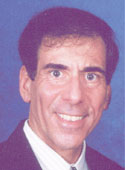By Robert Mario
Suffering from a “ringing in the ears” sounds benign enough on the scale of medical problems, but tinnitus and related hearing disorders that affect millions of Americans can become so severe that they lead to decreased life quality, anxiety, panic, depression and social isolation.
 Ringing in the ears, or tinnitus, is a common hearing disorder that is generated internally. Hyperacusis is a condition that amplifies sounds from the environment, causing distraction and pain.
Ringing in the ears, or tinnitus, is a common hearing disorder that is generated internally. Hyperacusis is a condition that amplifies sounds from the environment, causing distraction and pain.
Tinnitus and hyperacusis can vary in degree from mild symptoms that can be easily controlled, to symptoms that cause extreme pain and discomfort. Both afflict people of all ages.
Symptoms can occur alone or simultaneously. The longer the symptoms go untreated, the more intrusive they can become.
As many as 40 million Americans experience symptoms all the time, and it is believed those symptoms are significant enough to affect quality of life in one to two million of them. There is no cure for tinnitus, but many sufferers may be interested to know that there is a treatment approach that was developed and tested throughout the 1980s and finally put into clinical practice in the early 1990s. “Even though tinnitus and hyperacusis are each classified as a symptom and not a disease, they do require treatment,” said Pawel Jastreboff, PhD, ScD, professor in the Department of Otolaryngology at Emory University School of Medicine, and director of the Emory Tinnitus and Hyperacusis Center.
According to Jastreboff, “both tinnitus and hyperacusis may affect attention, work, sleep and sociability. These disorders can cause serious psychological as well as physical dysfunction that can devastate a patient’s life. Jastreboff and Dr. Jonathan Hazell developed tinnitus Retraining Therapy (TRT) in the 1980s. Jastreboff is a neurophysiologist who has conducted research at universities such as Yale, University of Maryland. He is now at Emory University in Atlanta, Georgia. More than two decades ago, Jastreboff and his wife Margaret, an associate professor of otolaryngology, combined their backgrounds in neurophysiology, neuroscience, electro acoustics, biophysics, biochemistry and pharmacology to study how the brain processes information within the auditory pathways.
Tinnitus therapy and information will be discussed further in next month’s column.
Dr. Robert Mario, PhD, BC-HIS, is the director of Mario Hearing and Tinnitus Clinics, with locations in West Roxbury, Cambridge, Mansfield and Melrose. He can be reached at 781-979-0800 or visit www.mariohearingclinics.com. Archives of articles from previous issues can be read at www.fiftyplusadvocate.com












